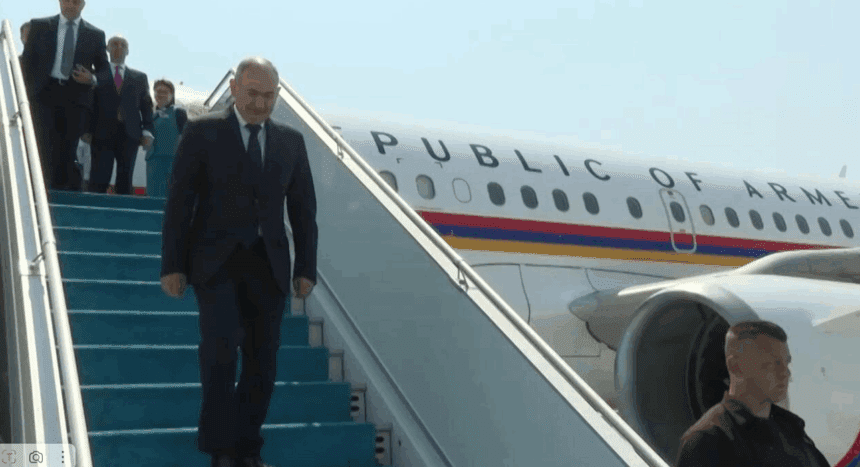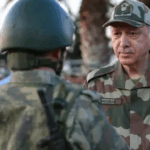Armenian Prime Minister Nikol Pashinyan arrived in İstanbul on Friday for talks with Turkish President Recep Tayyip Erdoğan, as part of ongoing efforts to improve relations between the two countries.
Pashinyan’s working visit comes at Erdoğan’s invitation. The leaders are scheduled to meet at Dolmabahçe Palace at 15:00 GMT, according to the Turkish presidency.
“Prime Minister Nikol Pashinyan has arrived in Turkey on a working visit,” Pashinyan’s spokeswoman Nazeli Baghdasaryan said in a statement.
Armenia and Turkey have no formal diplomatic ties, and their shared border has remained closed since the early 1990s. Relations have been strained over the mass killings of Armenians during World War I under the Ottoman Empire, which Armenia recognizes as genocide — a term Turkey rejects. Turkey’s longstanding support for Azerbaijan in its conflict with Armenia has further complicated ties.
Armenian National Assembly Speaker Alen Simonyan said the meeting would address key regional issues. “All regional issues will be discussed. The risks of war [with Azerbaijan] are currently minimal, and we must work to neutralize them. Pashinyan’s visit to Turkey is a step in that direction,” Simonyan told reporters.
An Armenian Foreign Ministry official said the talks would cover efforts to finalize a peace agreement between Armenia and Azerbaijan and discuss the broader regional impact of the conflict between Israel and Iran.
The meeting follows Erdoğan’s talks on Thursday with Azerbaijani President Ilham Aliyev, during which the two leaders reaffirmed their countries’ alliance and support for peace initiatives between Baku and Yerevan.
Pashinyan has made normalization with both Turkey and Azerbaijan a priority. Earlier this year, he announced Armenia would suspend its international campaign for genocide recognition, a move aimed at supporting dialogue with Turkey that drew domestic criticism.
This visit follows Pashinyan’s attendance at Erdoğan’s presidential inauguration in 2023. Armenia and Turkey resumed direct commercial flights in 2022 and appointed special envoys in 2021 to oversee dialogue. Previous efforts, including the 2009 Zurich Protocols, failed when Armenia did not ratify the agreement.



